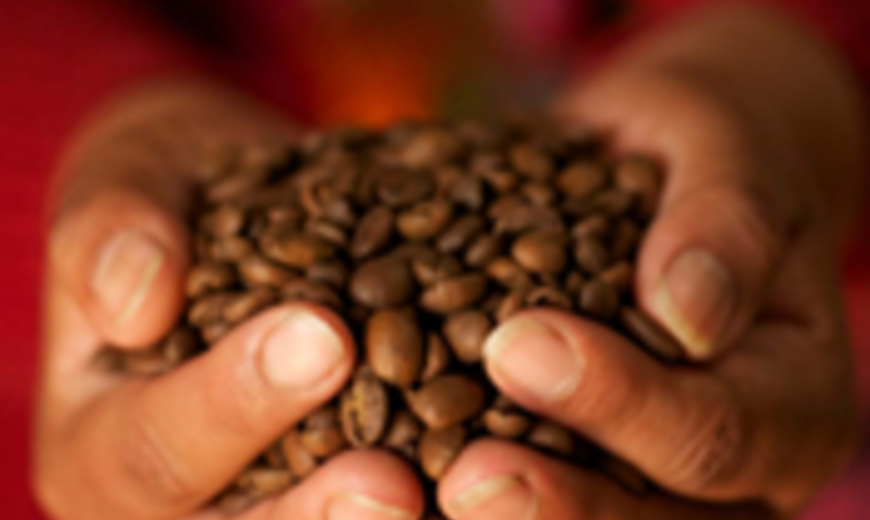1 Sep 2016
A Brewing Storm - Report Highlights Risk of Climate Change to Coffee

Image: Fairtrade
A new report from the Climate Institute shows coffee quality and cost will be impacted by climate change, but there are things we can do today.
Climate change is already putting production and cost pressures on the supply of coffee in significant parts of the world’s ‘bean belt’ of coffee producing countries. To better understand the impacts of climate on global coffee supply, Fairtrade Australia and New Zealand commissioned The Climate Institute to undertake research into these risks.
“Over 2.25 billion cups of coffee are consumed around the world every day” said CEO of The Climate Institute, John Connor. “Yet coffee is just one of a multitude of things increasingly subject to negative climate impacts, and its negative flow-on effects.”
The report ‘A Brewing Storm: The climate change risks to coffee’ shows that increasing temperatures and extreme weather events could cut the area suitable for production by up to 50 percent, erode coffee quality and increase coffee prices for consumers.
Since the 1960s, world coffee production has tripled and continues to deliver a five percent increase in consumption annually. It is up to the world’s 25 million coffee farmers to meet this demand- a tough ask considering 80-90 percent of coffee farmers are smallholders who are among those most exposed to climate change.
“Most of the world’s coffee farmers live in a zone referred to as the bean belt,” explains Fairtrade Australia CEO Molly Harris Olson, “an area which comprises around 70 mostly developing countries including Guatemala, Brazil, Vietnam, Colombia, Ethiopia and Indonesia. Climate change is already affecting these farmers in immediate and devastating ways.”
Heightened temperatures and rainfall have already increased the incidence of disease and pests affecting yields and quality. In already hot countries, more warming will also increase burdens on the physical and mental health of producers, labourers and communities - with clear productivity consequences.
This new report illustrates how, without strong climate action, the areas suitable for growing coffee could halve in a few decades, pushing production upslope, away from the equator and into conflict with other land uses, such as nature conservation and forestry. It predicts that by 2080 wild coffee, an important genetic resource for farmers, could even be extinct.
Recognising the impact of climate change, Fairtrade has developed a climate change programme to support farmers in dealing with its harsh effects. We have developed climate projects which provide farmers with financial and technical support to adapt to climate change. Last year we also launched the Fairtrade Climate Standard. This enables producers to improve their capability to face climate change, while also making their own contribution to reducing carbon emissions, making them eligible for Fairtrade Carbon Credits.
“There are things we coffee drinkers can do to assist,” said Connor. “The first step is to learn about these issues and the steps being taken by Fairtrade and others; the second is to take real action by choosing to buy only the brands that are carbon or climate neutral, provide a fair return to farmers and their communities while helping to build their capacity to adapt to climate change; third is to demand climate action from the coffee companies and our governments to ensure all products, business models and economies are carbon or climate neutral.”